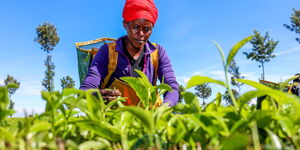The Kenya Bureau of Standards (KEBS) has issued an alert over poisonous foods flooding the market after the closure of schools by Education CS George Magoha.
On Wednesday, August 5, KEBS Managing Director Bernard Njiraini’s technical adviser Martin Masibo stated that Kenyans were consuming maize with high aflatoxin levels.
The maize originated from schools which are selling maize to millers to offset the foods which were bought from suppliers before the Covid-19 pandemic struck on March 13.
“We always carry out inspections and tests for aflatoxin to ensure that flour is up to par. Unfortunately, some shrewd companies flout the stipulated guidelines,” Masibo stated.
He added that a surveillance team was tasked with cracking down on the firms and individuals selling contaminated flour. Several maize products have already been pulled out of the market.
Masibo also lamented that poor storage and heavy rains in maize growing regions are a contributing factor to high aflatoxin levels. He urged millers to store food properly and check aflatoxin levels. The official directed millers to purchase aflatoxin testing machines worth Ksh 1 million as stipulated by KEBS to ensure maize is of high quality.
However, with aflatoxin poised to lead to cancer and other immune diseases, doubts linger on the safety of not only Kenyans but students who were to consume the maize being sold from schools.
On Wednesday, July 8, suppliers lamented that they were set to lose Ksh 1.2 billion from supplying equipment and foods to schools and wanted Education CS George Magoha to set up measures to cushion them from insolvency.
The maize issue has been a widely debated matter in Kenya since NTV investigative journalist Dennis Okari lifted the lid on how legislators were privy to a shocking poisoned maize scandal.
In the 2019 exposé, former Naivasha MP John Mututho claimed to have personally witnessed legislators receiving loads of cash from within Parliament to quash the Report on Food Security Status and the Maize Shortage in the country that was tabled at the National Assembly on April 2009.
Animals have also been affected by aflatoxins, with KEBS launching an investigation into claims that pet foods may be toxic resulting in the death of dogs and other animals in some parts of the country in July 2020.
Kenya is facing a shortage of maize with millers warning of a possible increase in flour prices. Cereals Miller's Association CEO, Paloma Fernandes, in a local TV interview on Friday, July 31, detailed that farmers were taking advantage of the Covid-19 pandemic to hoard maize in anticipation that the government would step in and increase maize-buying price.












